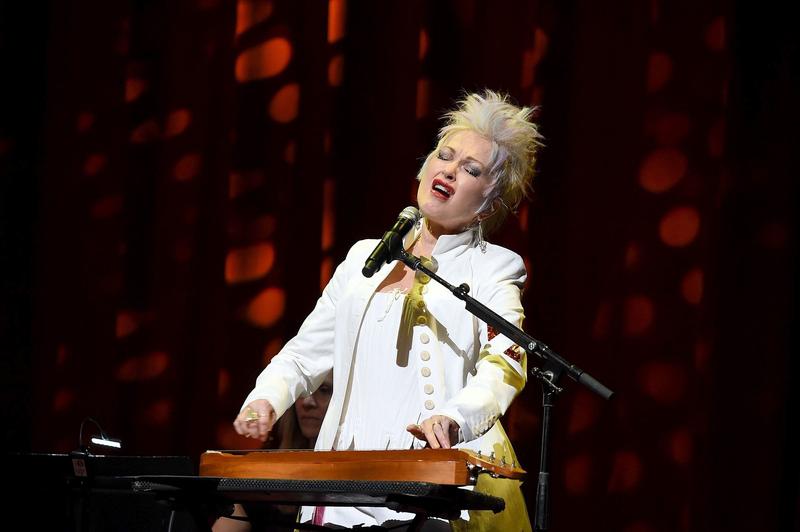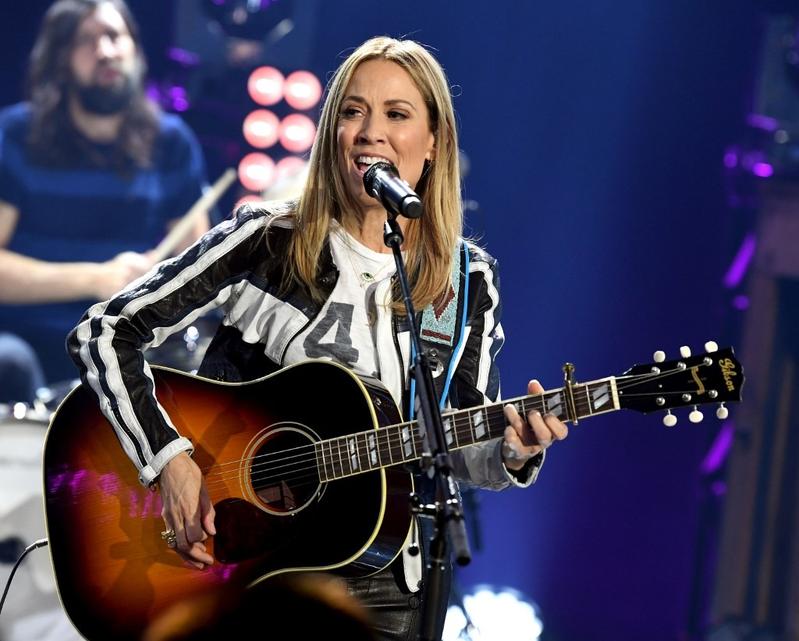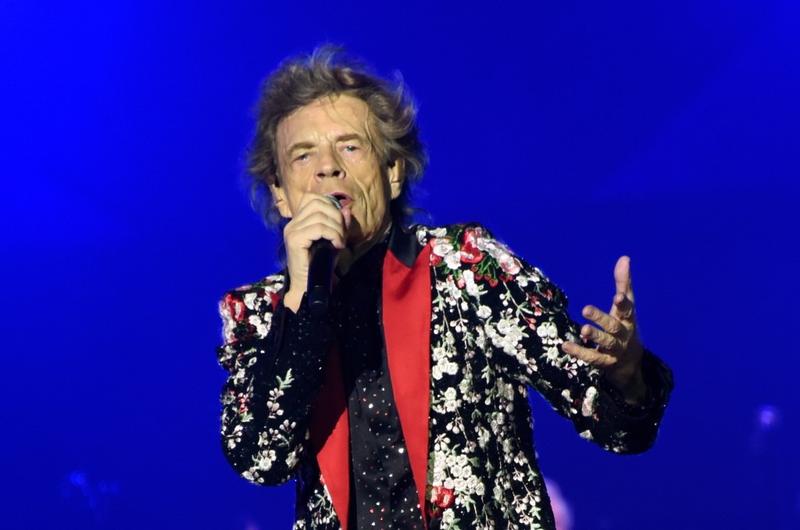 In this undated photo, Cyndi Lauper performs during the Fourth Annual LOVE ROCKS NYC benefit concert. (PHOTO / BLOOMBERG)
In this undated photo, Cyndi Lauper performs during the Fourth Annual LOVE ROCKS NYC benefit concert. (PHOTO / BLOOMBERG)
Some of the world’s biggest rock stars are demanding that US political parties take steps to prevent candidates from using music in ads and at events without permission.
The Rolling Stones last month threatened to sue over Trump’s use of 'You Can’t Always Get What You Want' to wrap up his rallies
The Artist Rights Alliance sent a letter on Tuesday to the Democratic and Republican national committees as well as their congressional and senatorial campaign arms. The letter urges the parties to establish policies requiring candidates to get consent before using their music -- or risk losing losing the financial backing of the parties.
“This is a tap on their shoulder to ask them to do the right thing,” said Ted Kalo, the alliance’s executive director. “If they’re not responsive to a tap on the shoulder, I expect the level of communication will become more intense, both in the public square and in court.”
ALSO READ: Film, pop stars line up for global COVID-19 fundraising gig
The alliance, a Washington-based nonprofit that promotes the interests of artists, asked both parties to respond by Aug 10 with plans to implement these new rules.
 In this file photo taken on Dec 01, 2019 Sheryl Crow performs onstage during iHeartRadio LIVE With Sheryl Crow at iHeartRadio Theater on in Burbank, California. (KEVIN WINTER / GETTY IMAGES NORTH AMERICA / AFP)
In this file photo taken on Dec 01, 2019 Sheryl Crow performs onstage during iHeartRadio LIVE With Sheryl Crow at iHeartRadio Theater on in Burbank, California. (KEVIN WINTER / GETTY IMAGES NORTH AMERICA / AFP)
Lauper, Crow
More than 50 entities signed the letter, including Aerosmith, R.E.M, Panic! At The Disco, Cyndi Lauper, Elvis Costello, Sheryl Crow, Lykke Li and Lorde.
Jeff Allen, an entertainment attorney in Tennessee with Bradley Arant Boult Cummings LLP, said that campaigns should make sure they’re clear on all accounts before using music, but most artists don’t actually litigate. “You can send a cease-and-desist letter, you can shout to the media and say ‘I don’t support it,’” Allen said. “But at the end of the day those are just words.”
Political-entities licenses covering public performances can be obtained by Broadcast Music Inc and the American Society of Composers, Authors and Publishers. Musicians can tell the organizations to exclude their work from the performances.
Kalo, who formerly served as general counsel for Democrats on the House Judiciary Committee, said he suspects “a lot of anger and energy will be brought to bear if the campaigns continue to misappropriate artists’ music.”
 In this Sept 12, 2017 photo, Elvis Costello arrives at the premiere of 'Film Stars Don't Die in Liverpool' at the Toronto International Film Festival in Toronto, Ontario. (GEOFF ROBINS / AFP)
In this Sept 12, 2017 photo, Elvis Costello arrives at the premiere of 'Film Stars Don't Die in Liverpool' at the Toronto International Film Festival in Toronto, Ontario. (GEOFF ROBINS / AFP)
Divisive politics
The consent of musicians, who may want to avoid appearing to endorse a candidate, is especially important in light of the divisive political atmosphere, Kalo said.
Unauthorized uses of music are a long-established issue in US elections. The 1984 re-election campaign of Ronald Reagan used Bruce Springsteen’s music after the release of Born in the USA. Springsteen mused at concerts later that year over whether or not Reagan had actually listened to the album, which carried themes regarding veterans returning from the Vietnam War.
President Donald Trump’s rallies have prompted numerous artists to complain about the use of their music without permission, Kalo said.
Singer Neil Young said in a post this week on his website that he’s considering suing Trump for playing his Rockin’ in the Free World at campaign rallies.
READ MORE: WHO, Lady Gaga join hands for coronavirus benefit concert
 In this Aug 30, 2019 photo, Mick Jagger of The Rolling Stones performs onstage at Hard Rock Stadium in Miami Gardens, Florida. (MICHELE EVE SANDBERG / AFP)
In this Aug 30, 2019 photo, Mick Jagger of The Rolling Stones performs onstage at Hard Rock Stadium in Miami Gardens, Florida. (MICHELE EVE SANDBERG / AFP)
The Rolling Stones last month threatened to sue over Trump’s use of You Can’t Always Get What You Want to wrap up his rallies.
“For artists that do choose to engage politically in campaigns or other contexts, this kind of unauthorized public use confuses their message and undermines their effectiveness,” the alliance said in its letter. “Music tells powerful stories and drives emotional connection and engagement -- that’s why campaigns use it, after all! But doing so without permission siphons away that value.”


